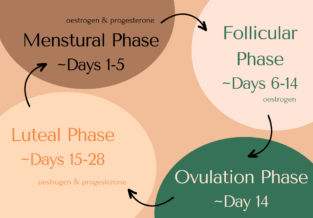How to Exercise Safely During Pregnancy
Published on
06 Feb 2017


Written by
Emma Martel (Lee)
Consultant Physiotherapist
Call us on: (03) 9975 4133
Exercise doesn’t have to take the backseat when you’re expecting. Emma Lee sets the guidelines straight about exercise and what is recommended during your pregnancy!
Rules and Regulations
There’s a lot of confusing information thrown around about pregnancy – what you can and can’t eat, what you can and can’t drink, and what sort of exercise is safe for you and your baby bump.
The benefits of exercise during pregnancy are well established, and contrary to popular belief, women (unless advised by their doctor) are encouraged to participate in regular exercise during their pregnancy. Unfortunately, many women remain inactive or significantly reduce their exercise participation during their pregnancy due to uncertainty surrounding what they can and can’t do.
Let’s set the guidelines straight about exercise and what is recommended during your pregnancy!
Understanding the Benefits
There are well documented benefits to exercise during pregnancy including:
- Improved physical/mental wellbeing and general health.
- Maintaining a healthy weight during pregnancy.
- Improved return to pre-baby weight.
There is also some evidence to suggest that exercise promotes:
- A shorter and less complicated labour.
- A reduced risk of gestational diabetes.
What are the risks of exercise during pregnancy?
There is no evidence that regular exercise during an uncomplicated pregnancy is detrimental to a woman or foetus. However, if you are uncertain, it is recommended that you consult with your obstetrician, doctor or health professional to identify any risks or considerations prior to commencing an exercise program.
Women should aim to be physically active most days of the week, for approximately 30 minutes at a time. It is important to consider your baseline fitness level to guide your pregnancy exercise program.
Previously inactive women or overweight women should start with 15-20 mins of moderate intensity 3-4 times a week, and gradually build up to 30 mins.
Women who were active prior to falling pregnant can continue with their regular exercise or sport, as long as the associated risks highlighted in this article are considered.
If in doubt, consult with your GP, obstetrician or physiotherapist.
Building Intensity
No research to date has identified a safe upper limit to exercise duration or intensity, therefore pregnant women are advised to participate in moderate intensity exercise.
This can be guided by how ‘hard’ you feel the workout is. Women are advised to exercise at a ‘moderate intensity’, which can be defined as being able to maintain conversation during exercise.
As a guideline, it is advised that women keep exercise to a maximum of 60 mins per session unless the intensity is especially low, and a minimum of 30 minutes per day. Ultimately, listen to your body and stop if things don’t feel right or you feel uncomfortable.
Knowing When to Stop
It is important to immediately cease exercise and consult your doctor if you feel any of the following:
- Chest pain.
- Unexplained shortness of breath.
- Dizziness, feeling faint or head pain.
- Muscle weakness.
- Calf pain, swelling or redness.
- Vaginal bleeding or amniotic fluid loss.
- Decreased foetal movement.
- Uterine contractions or pain in the lower back, pelvic area of abdomen (potentially indicating pre-term labour).
Exercise to Avoid
It is advised that pregnant women avoid the following activities during pregnancy:
- Contact sports or activities where there is a high risk of falling.
- High altitude exertion and scuba diving.
- Heavy weight lifting.
- Prolonged immersion in heated spas and hydrotherapy pools to avoid the risk of overheating.
- Exercises involving lying on your back for a prolonged period following the first trimester. Modified positions of exercise such as lying on your side, sitting or standing are advised.
During pregnancy, some women can experience supine hypotension, which is where the weight of the growing foetus places pressure on the mother’s large blood vessels in the abdomen.
This can affect normal blood flow and lead to symptoms such as light-headedness, dizziness, sweating, nausea and feeling unwell.
For this reason, women should avoid lying on their back after the first trimester. Remember that this may affect your sleeping position and exercises during yoga or pilates.
Unless advised by a medical professional, women are advised to participate in both aerobic and strength exercise.
Aerobic Exercise
Aerobic exercise involves continuous activity that uses large muscle groups and elevates your heart and breathing rate. Activities below are recommended:
- Walking.
- Jogging (if you are already a runner).
- Swimming.
- Cycling (on a stationary bike).
- Low-impact aerobic exercise class.
- Exercise in water (aquaerobics).
Strength Exercise
Women are also encouraged to participate in two strength training session a week on non-consecutive days. It is advised to avoid heavy weight lifting and focus on moderate strength exercise.
Examples include:
- Yoga or Pilates
- Pregnancy exercise classes
- Strength training involving light weights, body weight or resistance bands of moderate intensity.
Running During Pregnancy:
For women who are not already runners, it is not advised to commence running during pregnancy as your body is not accustomed to this form of high impact activity.
Women who are well accustomed to running prior to pregnancy can continue to run, provided that they adjust their routine to allow for changes in their tolerance and comfort.
There is no scientific evidence that discourages women to run during pregnancy, as long as they listen to their body and monitor their tolerance under the guidance of health professionals.
We’re here to help.
There is ample evidence to support and encourage women to engage in regular exercise during pregnancy.
It is important to tailor your exercise program according to your previous level of fitness, and to closely monitor how your body responds to exercise throughout your pregnancy.
Remember that your tolerance will change with time, so listen to your body and tailor your program accordingly. If ever in doubt, consult your obstetrician, doctor or health professional for their guidance.
If you’d like more information, or help with creating a training program that works for you during your pregnancy, don’t hesitate to get in touch with one of our friendly staff today.
About the Author
Emma Martel (Lee) — Consultant Physiotherapist
Emma values the importance of listening to her patients to fully understand their symptoms and treatment goals. Through skilled biomechanical analysis of the whole body, her objective lies not only in treating symptoms but identifying the true origin of the problem and working with her patients to prevent future episodes of pain and injury.


